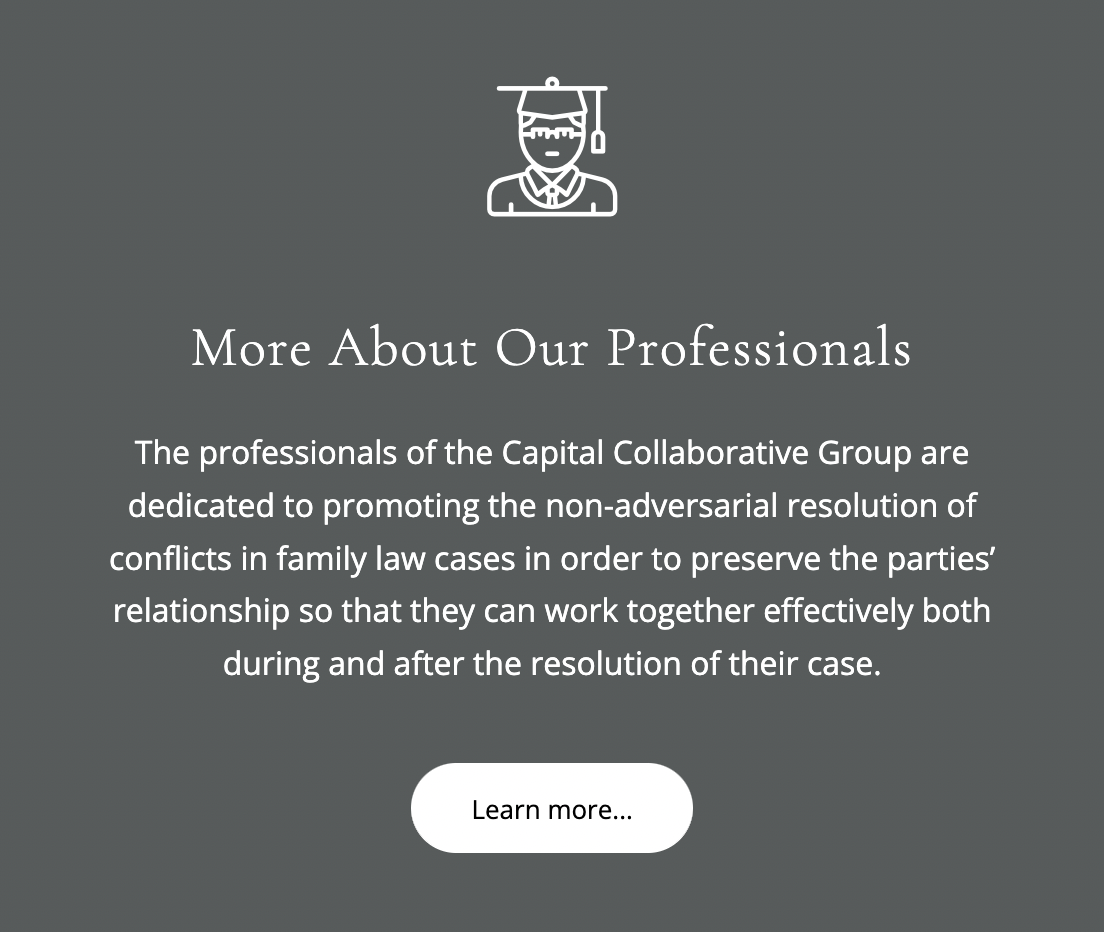
About Capital Collaborative Group
Mission Statement
Our mission is to create a community of collaboratively trained and experienced professionals in Tallahassee and the Florida Panhandle area. We offer a peaceful, non-adversarial process to those considering divorce and other family law matters needing resolution. The preservation of relationships and the dignity and peace of divorcing couples and their families are core values of the collaborative process and Capital Collaborative Group.
The Group
The collaborative divorce process is an alternative to traditional litigation. Instead, family law cases, such as divorce, paternity, and modification proceedings are handled in a non-adversarial manner with a team of collaborative professionals. Handling family law cases through the collaborative process has many benefits, such as reducing the emotional toll of family law proceedings, conserving financial resources, and preserving family relationships and bonds. During the collaborative process, parties focus on their interests going forward instead of getting stuck in positions and focusing on the past. This in turn reduces conflict between the parties. When children are involved in family law proceedings, it is crucial to reduce, if not eliminate, conflict between the parties because research has shown that children transition through family law cases much more successfully when their parents do not exhibit conflict.
In a collaborative family law case, the parties are each represented by their own collaboratively-trained attorney. In addition to attorneys, other collaboratively-trained, neutral professionals will likely be involved in the process. For example, the parties can expect to have a neutral mental health professional involved in the process, not to evaluate, diagnose, or treat the parties, but to facilitate discussions to reduce emotions and conflict and to help the parties focus on their interests. If there are financial issues in the case, then a neutral financial professional, such as a CPA or a CFP, may help the parties and their attorneys evaluate the finances and develop a financial plan for the parties. The hiring of the neutral professionals will be discussed and decided upon by the attorneys in conjunction with the parties.
In Florida, the collaborative process in family law cases is governed mostly by chapter 61, part III, Florida Statutes, as well as rule 4-1.19, Rules Regulating the Florida Bar. The collaborative law process is also handled by contract law because when the parties decide to handle their family law case in a collaborative fashion, they enter into a contract called a “participation agreement,” which governs the course and conduct of their collaborative case. In almost all cases, neither party will file any documents with the court until the end or near the end of the collaborative process, when the parties have reached an agreement. Furthermore, the collaborative process respects the parties’ privacy, and they can exercise greater control over their information, such as their financial information, in keeping it out of the public record.
Helpful Links
Family Courts - Dissolution of Marriage Options
Choosing a Divorce Process - the difference between divorce options


